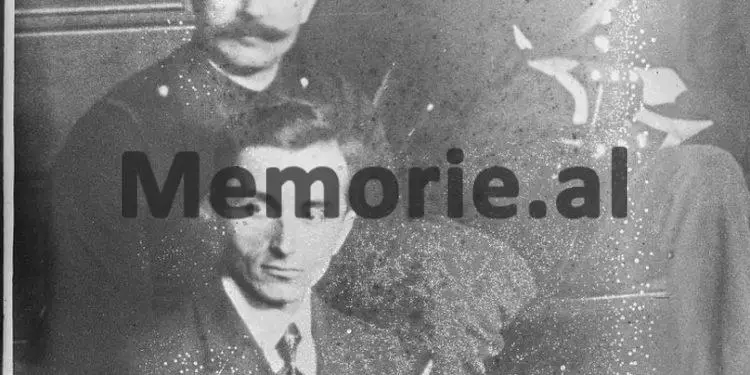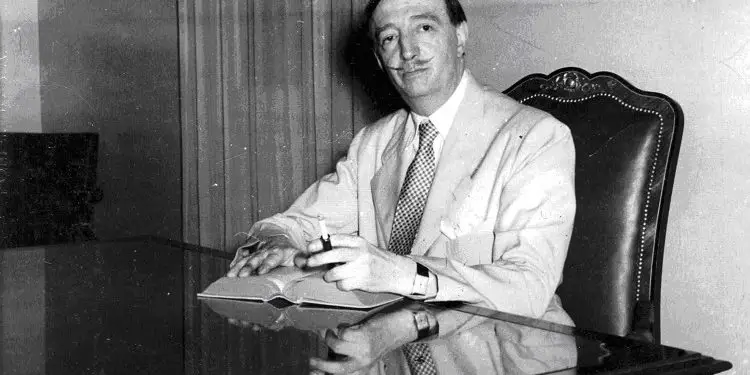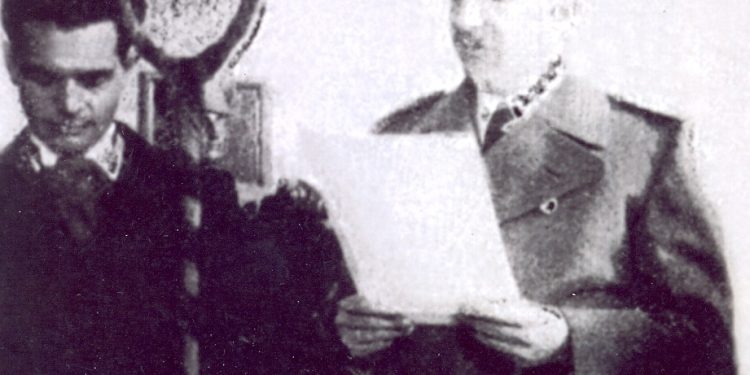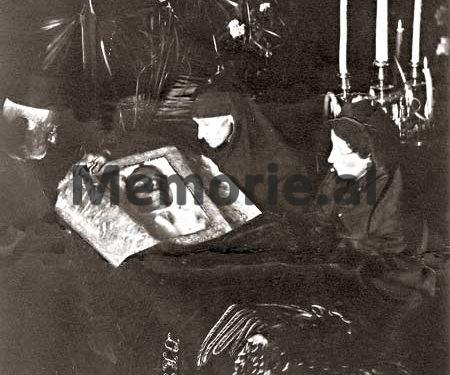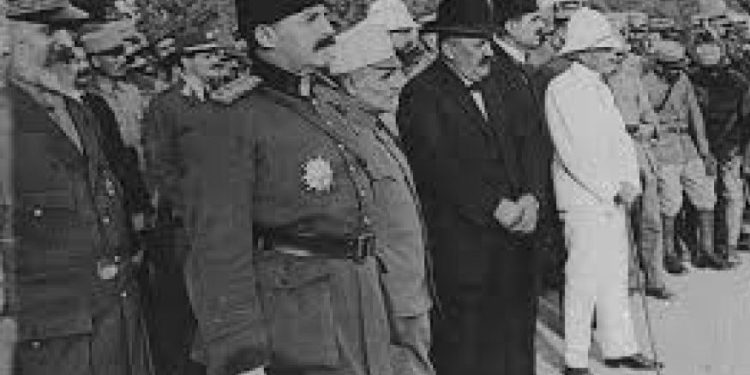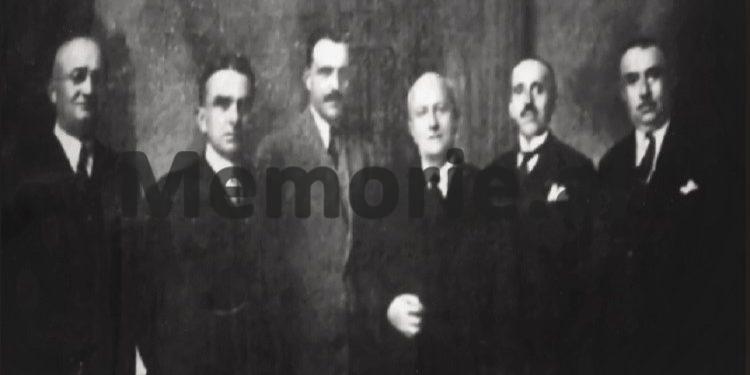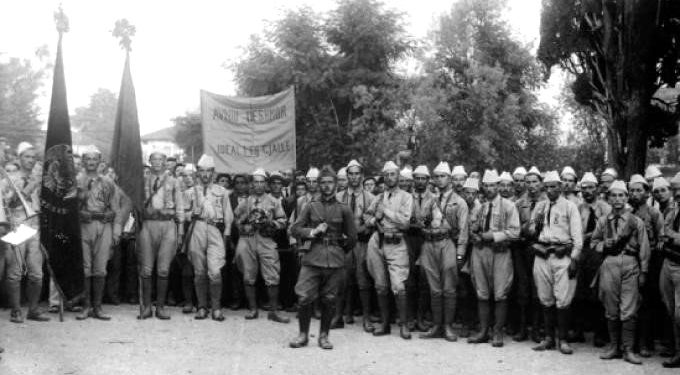By: Kastriot Dervishi
-Rustem, the patriot of money: Rejected by the Americans, appreciated by the fascist and communist regimes-
Memorie.al / The murder of Esat Toptan in Paris on June 13, 1920, were ordered from Tirana, from the opposing wing of the victim. There is, apart from political competition, no patriotic motive. It is related to the breakdown of the compromise reached at the beginning of 1920, which made Esat part of the government. In March 1920, supporters of Esat, through Osman Bali, put armed pressure on the government (but without killing anyone) to enter into negotiations with Esat. On April 15, 1920, unable to cope with the pro-Esatist forces, the Parliament decided to send a delegation to Paris, for talks with Esat, consisting of Monsignor Gjergj Koleci, Ymer Deliallisi, Fuat Toptani and Bajram Fevziu, where the main points were; the dispersion of the people on the day this declaration was made known, forgiveness for those who participated in the uprising and the punishment of the disobedient.
Precisely in the negotiation phase, Avni Rustemi is offered, against payment, to kill Esat in the interest of his political opponents. What Osman Bali could do with his forces remains hypothetical and unclear? But, if Bali did not do such actions, no one would have driven Esati to where he was, nor would we ever hear tales of “betrayal” towards him. Sejfi Vllamasi remembers the moment of Avni Rustemi’s appearance:
“Avni Rustemi continued his studies in Rome. One day he goes to the house of Tefik Mborje, inspector of Albanian students in Italy (actually he was the chief secretary of the Albanian representation in Rome – note K.D.) and tells him that; had decided to kill Esat, to save Albania, but he needed the money for later expenses. At that time you had come from Tirana to Rome, a mixed government-Esatist delegation, which was on its way to Paris, to meet Esat.
Tefik Mborja, meets Bajram Fevzi, a member of that delegation, reports Avni’s decision about Esat and B. Fevziu, promises that he will write to Xhavit Leskovik in Tirana, supporting Avni’s thesis, as well as for the help of money that he would need. Avni landed in Durrës on May 5, 1920, with Bajram Fevzi’s letter to Xhavit Leskovik, and Tefik Mborje’s letter to Qazim Kokoshi. Supplied with the necessary tools and escorted by Tefik Mborja, Avniu leaves for Paris and after a few days, carries out his mission, at the decisive moment, at the moment of the large-scale uprising that Esati had prepared”.
***
Avni Rustemi was a person who is not remembered for anything important, except for the implementation of terrorist methods, the legalization of murders with any kind of justification, as well as the misuse of youth. After the terrorist act of Paris on June 13, 1920, against former Prime Minister Esat Toptani, and the transition to a strange process of French justice, Rustemi came to Albania.
Skipped the mission and from a man ordered for a murder, entered politics by being elected deputy under dubious circumstances, after clearly losing in other constituencies (in 1923, he ran in more than one constituency).
In his destructive activity for the Albanian state, especially in the direction of the bad education of the youth and the administration, he did not stop. He thought that only through murder, he could achieve his political goals. He ordered other murders, in the direction of Ahmet Zog and some families, such as Vlora or Libohova. As a result, another reaction came, which is related to the popular philosophy “what you sow you will reap”. On April 20, 1924, Avni Rustemi was wounded by Isuf Reçi. Two days later, from the single wound received; he died in the Tirana hospital.
Two burial ceremonies were held for him, in Tirana and Vlora. They started on April 28, 1924, with the ceremony held in the square in front of the old mosque in Tirana. The coffin with his embalmed body traveled to Durrës, and from there on the steamer “Belgrade”, under the Yugoslav and Albanian flags, arrived in Vlora on Tuesday, April 29, 1924. The funeral ceremony took place on Wednesday, April 30, 1924.
The image of the murdered person took on such a large dimension that the anti-government press wrote that Avni Rustem’s grave would become like Mecca or Jerusalem. After delivering harsh speeches in front of Rustem’s corpse and heart, placed in a glass container, Rustem’s supporters organized three meetings in the town hall of Vlora.
Avni Rustemi’s resting place was thought to be a type of basement in the center of Vlora, which was honored for only 6-7 months. After that, there was a 58-year silence. It took 1982, when the Minister of Internal Affairs of that time, Hekuran Isai, became interested in Avni Rustemi’s grave. The body of Avni Rustemi was embalmed with great quality by Dr. Sezai Çomo. In addition, the coffin was better insulated, enabling the body not to decompose.
At the top of his head, he had a glass to look into, while the burial place was an underground chamber, adapted to pay homage on occasion. Although it seems somewhat strange, the possibility of imitating Lenin’s embalming in Moscow is not excluded. The lid of the burial chamber was opened at 13:00 on October 8, 1982. Several well-known names in history, ministers and local government leaders were present. The disinfection was done and the reopening was decided two hours later.
First, the fascist regime (the period of the Italian occupation of Albania, 1939-1943) and then the communist one honored Avni Rustem with the names of streets, schools, busts and monuments. Each according to their own interests, the fascists saw him as an antizogist, while the communists, in addition, as a revolutionary, against the wealthy classes, etc. Nothing has changed even today, when the person adored by fascists and communists is honored with the names of squares, busts and statues.
***
Eqrem Vlora called Avni Rustem, a “political coward”, who, since 1922, led the company “Bashkimi”, whose activity was aimed at capturing the administration and the youth. But, Avni Rustemi was killed rejected by the Americans; he was not given the visa he requested. Rustemi participated for the last time in the Constitutional Assembly, on April 12, 1924, after having requested quarterly leave, three salaries and five advance pensions (Avniu had been receiving a pension for several years, in addition to his salary), publicly declaring that he would go to the USA , despite not having received a visa.
He considered this process safe, because he remembered that he was a great, very important man. On March 25, 1924, he applied for a visa on the grounds that he would collect aid for the poor, and a day later he deposited the sum of 20 napoleons in the American legation in Tirana. Paying, he behaved offensively with the staff of the legate.
The American minister in Tirana, Grant Smith, in the relevant report, analyzed the figure of Rustemi, underlining the fact; that he had defended the figure of Lenin in the Constitutional Assembly, bad behavior in the legates, etc. and suggested to the US State Department (DASH) not to grant him a visa.
On April 2, 1924, smelling that he might be rejected by America, Rustemi threatened the American legate in Tirana that if the answer was negative, he would “show his pleasure” to Grand Smith, protesting with the deputies who supported him in the American Congress against him. . The American legation emphasized that Rustemi had publicly announced his visit to America even though he had not received a visa. On April 8, 1924, DASH replied that Rustem could not be given a diplomatic visa,
Rustemi came to Tirana on 20.4.1924, to get the visa, but he received a refusal and that same day he was injured and two days later, he died in the Tirana hospital. He was rejected by America, while in the years of fascism and communism; he was honored as if he were some great figure, turning into a bad example for anyone who had him as a model.
***
Regarding this, Reshat Kelliçi, in his book “With the sons of the Union” (1965 edition, pp. 126-127), among others, writes: “On April 25-28, 1921, Avni Rustemi gathered 47 delegates in Vlora , representing 25 companies and 15 townspeople, announced the formation of the “Atdheu” Federation, which had as its main goal the penetration of the state civil service, with its program.
Based on this, the government of Xhaferr Ypi ordered the closure of the federation. However, Avni Rustemi, on October 13, 1922, formed in Tirana the society “Bashkimi”, which also approved its statute and regulations. The goal of the “Union” society remained the attraction of the youth to its ranks, as well as the destruction of that class that was in power.
After Avni Rustemi’s murder, the society carried out military mobilization, creating a volunteer militia and calling for conscription and terror. Society oscillated between communist and fascist ideals. They created a kind of armed force, which seemed end to end, Bashibozuke, but also funny, as the form was also supplemented with oaths, for an imaginary ideal. On the chest they had written a letter “B”, which symbolized the name of the company. They wanted to resemble Avni Rustem, killing.
With the return of Ahmet Zogu to power in December 1924, a good part of the members of the “Union” turned to the country of ideal and world crime, the Soviet Union, proving how many crooked paths they had taken. The boys of the ‘Union’, a completely disoriented and compass less youth, traveled with the government of Noli, after receiving the state of the treasury of Tirana and the revenues of the customs of Saranda, Durrës and Vlora. With three steamers, they left for Italy. After being thoroughly checked by the Italian police, they landed in Brindisi, like a distracted crowd. There they won the anger of the people; because of the letter “B” they carried in the comparative.
From there in the evening, immigrants poured through the streets of the small town, especially those who had never been to Italy, to see a bit of Europe with their eyes; stood in front of the few display cases, looking in amazement at all kinds of things. However, with that “B” on the chest, the boys of “Bashkim” found trouble from the locals, who watched with amazement how Mussolini had allowed the Albanian “Bolsheviks” to roam the streets of Brindisi. After a while, all those who were still wearing the uniform of the “Union” quickly bought some cheap clothes, which they sold for fakirs in the shops tucked away in some alleys, and thus escaped from the trouble of “B”. ! Memorie.al




